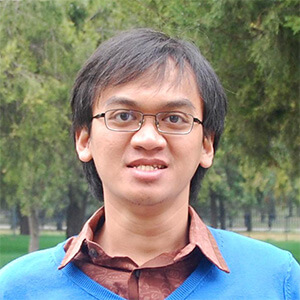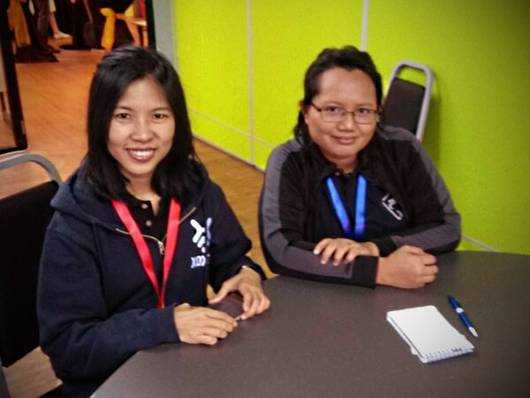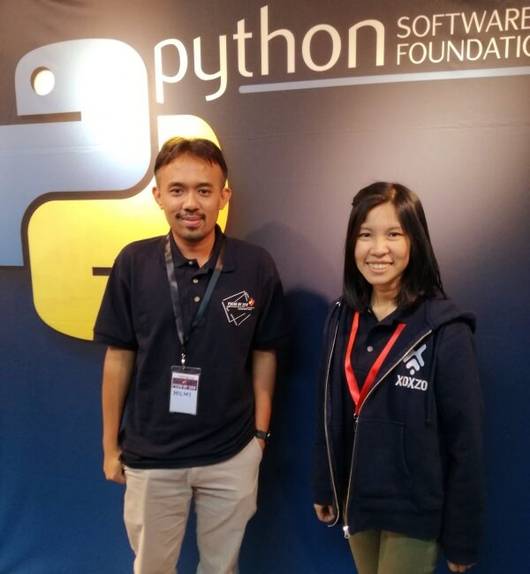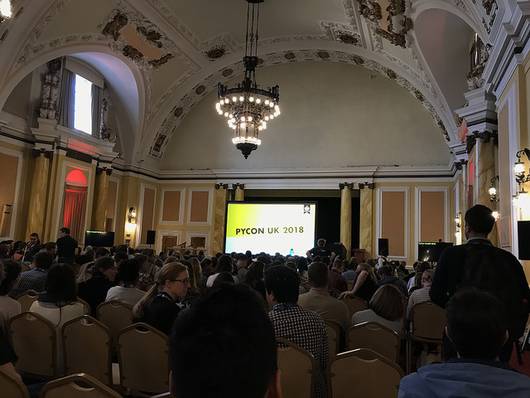My first online conference experience
It’s already November and, in a few weeks, we will enter 2021. With the Covid19 pandemic, it hasn’t been an easy year for anyone.
Unlike previous years, PyCon ID 2020 was held online to adapt to this new reality. And similarly to many people, this was my first online conference experience.
PyCon aka Python Conference is an event where Python enthusiasts gather. No matter what your skill is, PyCon will always be a friendly event for everyone. PyCon ID 2020 theme was: Connect, Collab, and Contribute
There were three keynote speakers, regular talks and also the more casual lightning talks. I was able to attend all the keynote speakers' sessions, but I wasn’t able to attend all regular talks, and none of the lightning talks.
The perks of attending a conference online are that you don’t need to commute to go to the venue. You can just hop to your computer and voila! You’re there.
I felt excited when the conference started. It’s like I’m in the same place as the speakers. Although the organizers said the recording of some sessions will be available online, watching them live gives a more connected-feeling. Especially when you can ask questions and the speaker replies. I really like it when the moderator picks a question, and the question is displayed on the screen, it feels very engaging.
I’ll write a short review of each keynote speaker. And of course, I’ll salute them for their commitment to giving a talk although they’re not in the same timezone as in Jakarta timezone.
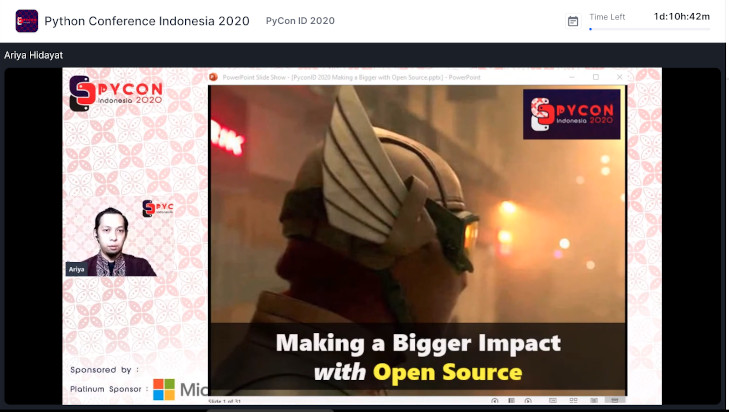
The first speaker was Ariya Hidayat. The very-humble-living-legend-ninja-engineer. He has a Ph.D. degree but he decided to not pursue a career as a university professor. If I recall correctly, he wrote in his dissertation: “(...) after doing this research, I wonder, why did I decide to do this?”.
I only met Ariya in person once, and what I found very surprising was that he greeted me first!
Ariya emphasizes the spirit of open source: helping each other out. This actually has been in Indonesian people's blood for a long time. We have a term: “Gotong Royong” which literally means helping each other. To contribute to open source, we should start by doing small. We can start by fixing typos, adding documentation, adding test code, or even answering questions.
Ariya also explains: in current times if you want to build a startup, it’s impossible not to build your product on top of open-source software. It’s like a quote from Isaac Newton: “If I have seen further it is by standing on the shoulder of giants”.
Contributing to open source can also be seen as an investment. On building your portfolio.
And it’s not Ariya if he presents without telling jokes. He described that we could not get married with the boy/girl we love because the parents knew that we had a very bad pull request: syntax error, no test code, the code is not well organized, and so on. Who knows that the parents are one of the open-source maintainers.
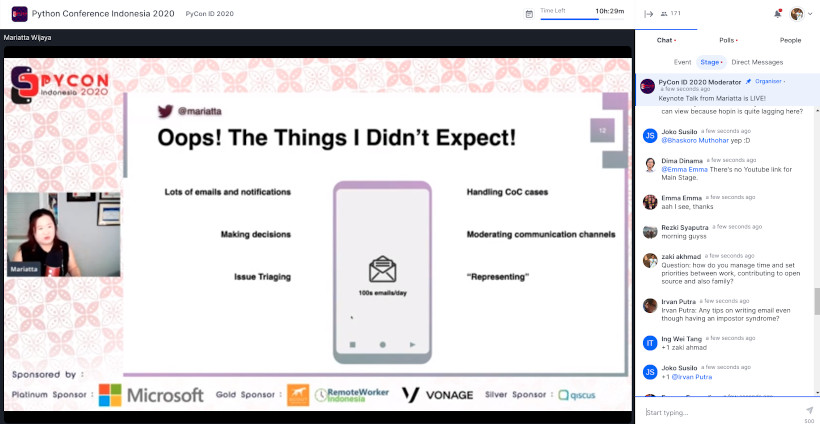
The second speaker was Mariatta Wijaya. I’ve never met her, but I follow her on Twitter. Mariatta shared her experience on how she became one of the Python core developers and how her journey started. She said it began around 5 years ago when she attended PyCon, she met Guido, made a simple pull request, and so on.
What I like about Mariatta’s session is that it feels very relatable: how she was unable to balance her time between work, family, and open source. She wrote some tips on how to have a good work-life balance while also still contributing to open source. And how she handles impostor syndrome: to consult with a health professional. Someone from the audience called Mariatta a supermom in the chat box!
The third speaker was Nina Zakharenko. Nina was wearing a jacket with lights. She likes tinkering with electronics projects, and she also showed her colorful-earring project. Nina said this is also a hard time for the community. We can’t meet in person, we do everything in front of the computer: school, work, and also socializing with our friends.
One good thing about this condition is that we can now attend any PyCon event anywhere in the world. Including this time, when she doesn’t have to take a flight to Indonesia to give a talk. The Python community will be stronger together.
Like I said before, I only managed to attend 2-3 regular talks. I attended Nurvirta Monarizqa’s session: “Using Python to Create a Local Law in New York City”. Mona shared her experience with modeling the garbage truck route in New York City. Data science isn’t my specialty, but it’s interesting to see that we can use Python to do this kind of work.
Then, Fauzan Emmerling session: on using Cython to go faster. I’ve known Fauzan for a long time. We had a good time back in the early 2010s when we actively organized Python ID meetups. Although Fauzan is not using Python in his daily work, he keeps his Python sharp by having a pet project.
On the other hand, attending a conference online also has some disadvantages. It’s the same thing as working from home. The event was on the weekend, but I couldn’t stay sitting in front of the computer for a whole day. So, whenever someone is feeling overwhelmed while working remotely I always try to give a balanced point of view.
